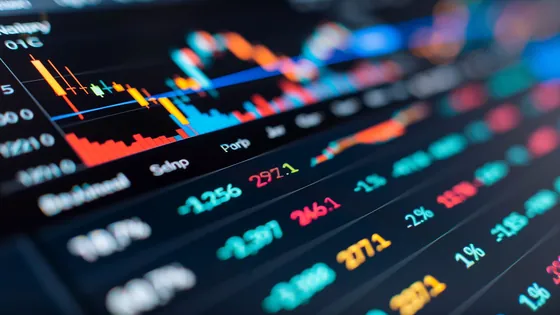In recent times, the global economic arena has experienced notable transformations, propelled by a diverse array of factors spanning from technological breakthroughs to geopolitical frictions. These evolving dynamics pose both challenges and prospects for investors worldwide. This piece delves into the prevailing global economic trends, their ramifications for investors, and effective strategies to navigate these fluctuations adeptly.
Understanding Worldwide Economic Trends

In the intricate fabric of contemporary society, comprehending global economic trends resembles deciphering the heartbeat of humanity's financial well-being. From the bustling avenues of Tokyo to the corporate chambers of New York, economic influences shape individual lives, business destinies, and national policies. As we traverse the ever-changing expanse of international finance, it becomes essential to grasp the fundamental trends propelling our global economy forward.
Advancements in Technology
At the vanguard of present-day economic trends lie advancements in technology. The swift pace of innovation, spanning from artificial intelligence to blockchain technology, continues to transform sectors, disrupt conventional business paradigms, and redefine occupational norms. Automation, once a distant concept, now emerges as a palpable force reshaping labor markets across the globe. While it pledges heightened efficacy and productivity, it also presents challenges such as workforce displacement and the imperative for skills enhancement.
Trade Dynamics
Globalization has perennially characterized the world economy, enabling the seamless exchange of commodities, services, and capital across borders. Nevertheless, recent times have witnessed a resurgence of protectionist sentiments and trade tensions among major economies. The ongoing trade discord between the United States and China, Brexit, and the renegotiation of trade accords like NAFTA epitomize the intricacies and uncertainties enveloping international trade. These dynamics carry substantial ramifications for enterprises, investors, and policymakers navigating an increasingly disjointed global marketplace.
Sustainable Environmental Practices
Against a backdrop of mounting apprehensions regarding climate change and environmental deterioration, sustainability emerges as a pivotal theme in global economic discussions. Enterprises confront escalating pressures to embrace eco-friendly practices, curtail carbon footprints, and transition to renewable energy reservoirs. Governments enact regulations and offer incentives to foster sustainability endeavors, acknowledging the imperative of safeguarding the planet for posterity. The transition toward a sustainable economy poses both hurdles and opportunities, with conceivable ramifications for sectors ranging from energy to transit.
Financial Markets Overview
Financial markets function as indicators of economic sentiment, mirroring investors' evaluations of risk, potential growth, and monetary policies. Turbulence in stock markets, currency exchange rate fluctuations, and changes in interest rates resonate globally, affecting asset valuations and the movement of capital. Central banks wield considerable influence in stabilizing financial markets through tools like interest rate alterations and quantitative easing. Furthermore, the emergence of digital currencies and innovations in financial technology (fintech) are reshaping the financial landscape, providing fresh avenues for investment and fostering financial inclusivity.
Investment Ramifications

Within the dynamic realm of global finance, investors face a perpetual challenge in anticipating and responding to diverse economic trends that impact markets worldwide. From geopolitical uncertainties to technological advancements, comprehending these trends is imperative for making well-informed investment choices and effectively managing risks. This article delves into the significant implications of global economic trends for investors, elucidating strategies to adeptly navigate the multifaceted terrain of an ever-evolving financial landscape.
Geopolitical Instability
Geopolitical upheavals and tensions possess the potential to disrupt markets and reshape investment scenarios rapidly. Whether it be trade conflicts or geopolitical disputes, uncertainty often translates into market volatility, testing the resilience of even the most seasoned investors. In such scenarios, diversification across various asset classes and geographical regions assumes paramount importance. Investors may seek refuge in safe-haven assets like gold or government bonds, while also considering alternative investments with lower correlations to traditional markets.
Technological Transformation
The relentless pace of technological progress is revolutionizing industries and birthing fresh investment opportunities. Entities at the forefront of innovation stand to reap substantial rewards, while those sluggish to adapt risk obsolescence. For investors, identifying trends such as artificial intelligence, cloud computing, and renewable energy can unlock avenues for lucrative growth. Nonetheless, it is imperative to conduct meticulous due diligence and evaluate the long-term viability of technology-centric investments amidst swiftly evolving market dynamics.
Environmental, Social, and Governance (ESG) Considerations
Environmental sustainability, social responsibility, and robust governance practices are exerting an escalating influence on investment decisions. Investors increasingly prioritize companies demonstrating dedication to ESG principles, acknowledging the potential for sustained value creation and risk mitigation. Integrating ESG criteria into investment analysis empowers investors to align their portfolios with their ethical values while simultaneously enhancing risk-adjusted returns. The mounting demand for ESG-centric investments underscores the significance of incorporating sustainability considerations into investment strategies.
Monetary Policy and Interest Rate Dynamics
Central bank policies and interest rate determinations wield substantial sway over financial markets and investment returns. Stimulative monetary policies, like low interest rates and quantitative easing, can spur inflation in asset prices and foster risk-taking behavior among investors. Conversely, tightening monetary policy may impede economic growth and precipitate market corrections. Investors must vigilantly monitor central bank pronouncements and adapt their investment strategies accordingly to capitalize on evolving interest rate environments.
Demographic Trends
Demographic shifts, including aging populations and urbanization, influence consumer preferences, labor markets, and investment prospects. Sectors catering to the needs of aging populations, such as healthcare and senior living facilities, present promising investment opportunities. Likewise, urbanization trends fuel demand for infrastructure development, real estate investments, and consumer goods and services in burgeoning urban hubs. A thorough understanding of demographic trends empowers investors to pinpoint sectors poised for growth and capitalize on emerging opportunities.
Conclusion

In conclusion, the global economic landscape is undergoing profound transformations propelled by burgeoning markets, technological innovations, sustainability imperatives, and geopolitical realignments. By discerning these trends and their implications, investors can devise strategies to navigate the evolving economic terrain adeptly. Embracing diversification, continual learning, ESG integration, and adaptability will be instrumental in achieving sustained investment success in this dynamic environment.










